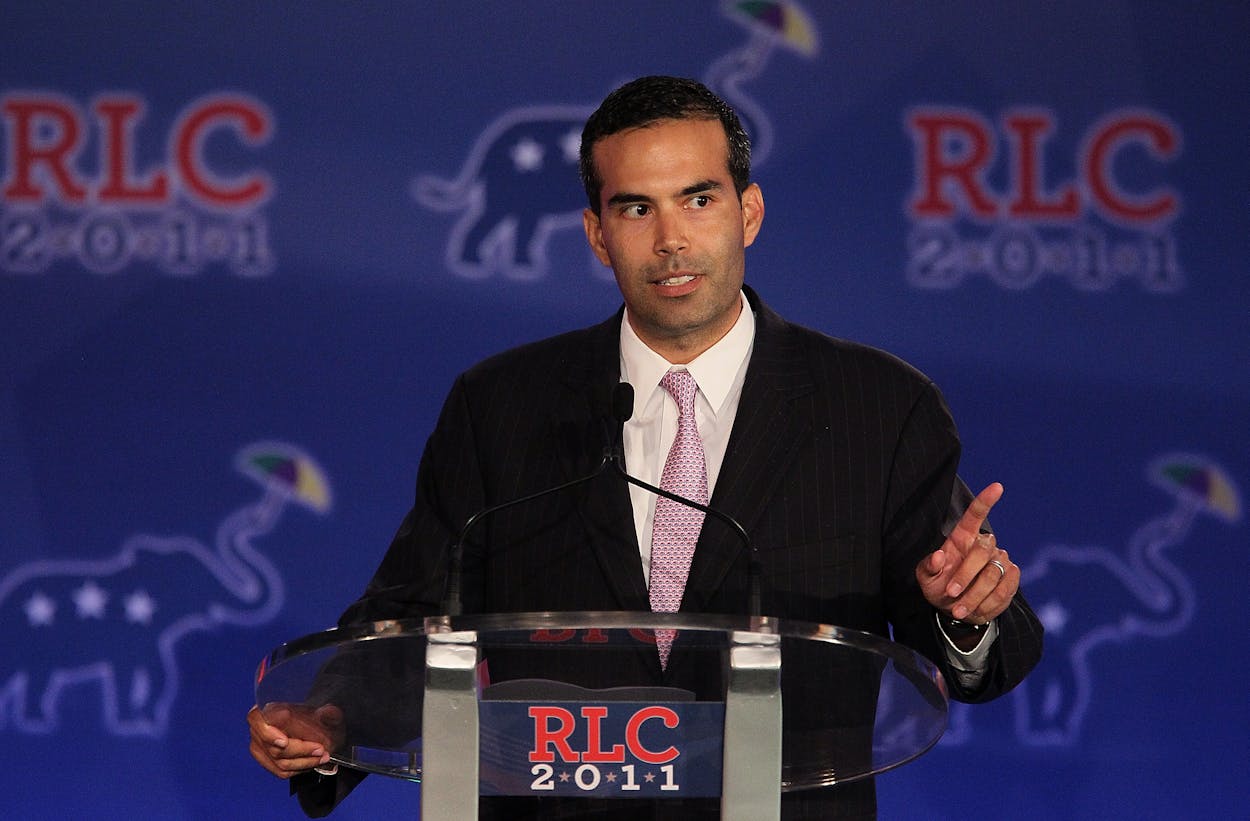Over the weekend, Texas Land Commissioner George P. Bush created a bit of a kerfuffle in national political circles by breaking with most of his family on the human hot-button issue known as Donald Trump. In P.’s remarks at a gathering of state party activists—which were captured on video, then obtained by the Texas Tribune’s Patrick Svitek—Bush said Republicans should support their party’s presidential nominee: “From Team Bush, it’s a bitter pill to swallow, but you know what? You get back up and you help the man that won, and you make sure that we stop Hillary Clinton.”
It’s debatable whether those comments technically qualify as an “endorsement,” but they were clearly a departure from the standard Bush family party line on the subject. George P.’s father, Jeb Bush, his uncle, George W. Bush, and his grandfather, George H.W. Bush, are among the most high-profile Republicans who have so far refused to support their party’s presidential nominee. Other members of the family seem to be on the same page. P.’s brother, Jeb Jr., tweeted an article criticizing Trump’s position on trade earlier today. And while former First Lady Laura Bush has politely declined to engage in the fray, I wouldn’t be surprised if she’s quietly planning to vote for Hillary Clinton, as many polite Republican ladies are.
Still—with all due respect to Svitek—I’m not sure P.’s stoical expression of support actually qualifies as news. P. was speaking to the assembled activists in his capacity as the Republican Party of Texas’s 2016 Victory Chairman, an assignment he agreed to take on at the end of May. I remember wondering, at the time, why P. had voluntarily drawn such a dispiritingly short straw. Trump was already the presumptive nominee, and, earlier that month, most of the Republican leaders at the state party convention had been visibly ambivalent about calling on attendees to unite behind the Donald’s cause. In agreeing to be the 2016 Victory Chairman, P. was unavoidably agreeing to pitch Republicans on a campaign he described on Saturday as “a bitter pill to swallow.” I’m sure he isn’t thrilled to be doing so, and the fact that he is seems like another example of the characteristically complicated Bush family dynamics that Texans have encountered before. In some sense P. is supporting Trump, both despite being a Bush and because he is a Bush.
For most other Republican elected officials, though, the question of whether to support Trump is not nearly so complicated, and this is likely why P.’s decision attracted more attention than most (so too did Ted Cruz’s, though for very different reasons).
More generally, though, the question to consider is whether Republicans who refuse to endorse Trump are risking their political future. My guess is that they are not, especially since Clinton has opened up a large polling lead already. The choice of some Republicans to endorse will be assessed in retrospect and on an individuated basis. But there’s probably not much downside to supporting the nominee; at this point so many Republicans have issued cursory calls to support Trump that it would be hard to unseat all of them. But there are, in fact, a number of Republican elected officials in Texas who have declined to support his candidacy. According to the sources I’ve been straw-polling, the angry phone calls to their office have mostly subsided.







